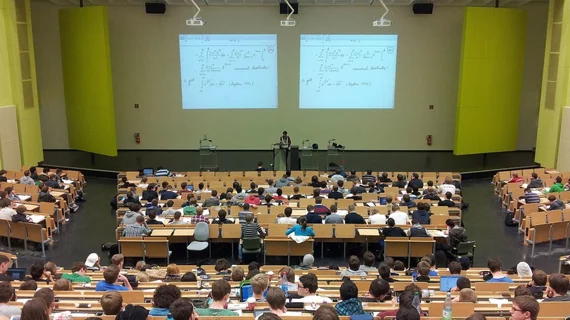A medical student in the U.K. is cautioning proponents of AI in healthcare to beware the technology’s possible adverse effects on medical education.
Anmol Arora, who’s studying at the University of Cambridge, points out that, for starters, much stands to be lost when algorithms relieve junior doctors—aka residents in the U.S.—of basic diagnostic tasks and simple administrative work.
“On the surface, this repetitive work may appear undesirable, but it is crucial to the experiential learning model and is a key component of junior doctor training,” Arora writes. “Given a long enough timeframe, this routine work will become more efficiently delegated to AI, which can work faster, more efficiently and for longer hours. This may result in a reduced demand for those junior doctors, whose work has been substantially altered.”
The opinion piece is running as a letter to the editor in the June edition of Future Healthcare Journal, which is published by the Royal College of Physicians.
Among the other hazards Arora flags is the potential for generation-wide dependence on AI coupled with a paucity of programming skills.
“Doctors must be able to understand, communicate and correct the outputs of AI systems,” Arora argues. “Without an understanding of dataset validation, algorithmic biases and machine learning principles, this seems difficult to achieve.”
Arora also notes that current guidance from the UK’s General Medical Council for medical schools doesn’t even mention computer skills.
That’s a concern, he suggests, because physicians who are unaware of AI’s limitations “may become susceptible to automation bias, whereby they place more trust in the technology than their own judgment.”
“Headlines are already emerging about AI outperforming doctors,” Arora adds, “who in the future may be reluctant to overrule these high-performing systems if they do not understand how they work.”
The journal has posted the piece in full for free.

